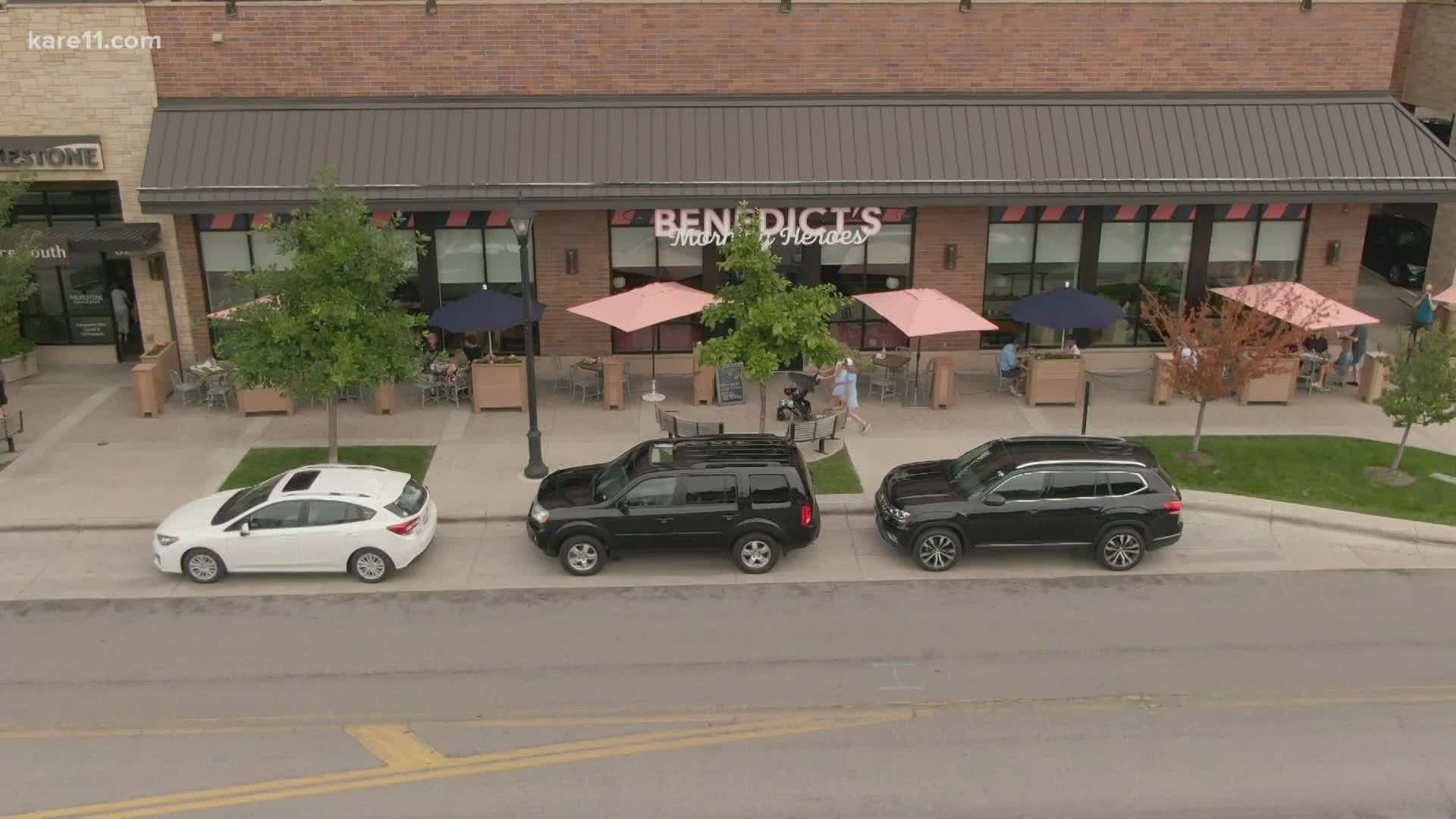WAYZATA, Minn. — Maybe you've noticed a few of your favorite restaurants moving to a service charge instead of tipping? It's something that has been tried before, but many more are now doing it during the pandemic. Why? We sat down with one owner to find out.
Mike Rakun owns several restaurants, including Benedict’s in Wayzata, Mill Valley Kitchen in St. Louis Park, and Mill Valley Market in Theodore Wirth Park. He figures now’s the time to change things up. I mean why not, right?
“The middle of a pandemic, and the world's upside down anyway, like what better time to try this? And it really kind of made sense for more reasons,” he says.
Rakun is moving to a service charge instead of tipping. At Benedict’s and Mill Valley Kitchen you'll see 18% automatically added to your bill. It’s 10% at the Market.
“We're taking that, and it goes to the business, and then the business is giving all the front of the house employees a substantial hourly increase,” he says.
Wait staff usually get a minimum wage and rely heavily on tips to fill the gap. But with the uncertainty of what's happening, it's hard to know what any given day will look like.
“To pull people off unemployment for $10 and hour, and maybe you're going to get some tips, that's a tough sell,” says Rakun.
“This is a guaranteed wage. It's what you're going to make whether it's rain, shine, sleet, snow, good or bad, this is what you get,” he says.
And since servers are not required to share tips with folks like the busboy, the food runner, or the dishwasher, Rakun says this allows him to pay all of them more, and level the playing field.
“I always felt there was this swath of people getting missed in this whole transaction so that was my main motivation,” he says.
So why not just raise prices? Because then the customer gets dinged twice. Higher prices, plus having to leave a tip. This takes that out of the equation.
“I don't want it to feel like we're trying to gouge the customer in order to take care of people or make our business more sustainable,” Rakun says.
Mike's not alone. Many others are moving to this no-tip, service charge.
Perhaps just another way this pandemic has changed how we do things.
“There's a growing number of establishments that are doing it. I think you'll see more as time goes on,” he says.
And the real question is...how has it been received?
“It's hasn't been easy, I'll tell you that, but change isn't easy so I'm okay with that,” he adds.
A few restaurants have tried this so-called European, no-tipping model before, but it's hard to get people used it. Rakun thinks the pandemic might just be the thing that helps push the change.

